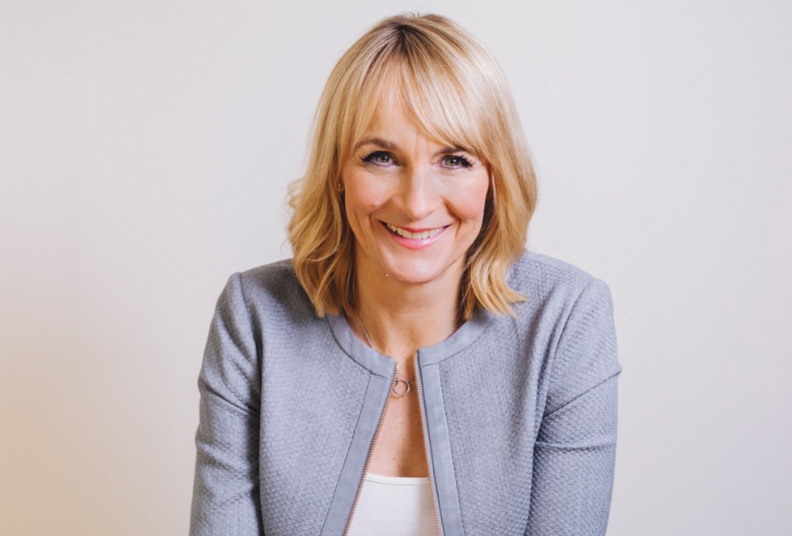On September 14, 2023, the Menopause Friendly Employer Awards will return for its second year in order to celebrate more of the truly amazing stories from workplaces across the UK.
And it’s not only the awards which are returning as the person who took such a bold stance four years ago to get menopause into the public eye, BBC journalist, presenter and recently acclaimed author, Louise Minchin, is to be the evening’s host once again.
We had the opportunity to catch up with Louise to ask her what she feels about the awards evening and to learn where she thinks we are in terms of menopause understanding, what still needs to be done to ensure that everyone working through their menopause receives the care and support that they need.
Question: Louise, I suppose the obvious opening question is to ask why are you returning as host of the Menopause Friendly Employer Awards?
Louise: I think the Menopause Friendly Employer Awards is a brilliant idea and also a really fun night! It is so good, and important, to be able to celebrate employers and individuals who are making a real difference for their employees and colleagues; making their lives easier and their jobs more manageable.
We should never overlook the fact that for many people, their job is not only something they need to do; it’s something they want to do and love to do as well. The great work that these organisations and employers are doing is allowing people to keep enjoying their work. This will benefit the individuals, their families, their communities and their workplace.
The Awards gives you a real sense that we are changing things and that is fantastic!
Question: You say you note a sense of things changing: how far do you believe we have come in getting menopause talked about?
Louise: I deliberately expressed the feeling as a sense that things are changing. Of course, at the awards evening we are together with like-minded people and it will feel very positive as we celebrate all the good things that are occurring.
I am still hearing from women who are struggling in their workplace with their symptoms, but they do seem to be more aware now that there are things that can be done to help and support them.
Question: So, you’d say that progress has been made?
Louise: Oh, definitely! I think that it’s great that women are speaking out and reaching out; progress has absolutely been made in respect of people feeling comfortable in speaking about their situation. True, they may not get the answers but they know that they can, and should, ask the questions. The conversation is no longer taboo – and that is a huge step forward! There’s a great deal of work being done by so many different people, including MPs, campaigners, companies and individuals making the topic something which is ‘normal’ and can be talked about at work, at home and among friends.
Question: The Menopause Friendly Employer Awards rightly recognises those that are making a difference for their colleagues, but what about those employers who are lagging behind? How do we make them listen and take positive action?
Louise: Events such as this and the industry-recognised Menopause Friendly Accreditation undoubtedly help in bringing more employers on board. The appointment of Helen Tomlinson as the first Menopause Employment Champion and the acceptance of several recommendations put forward by the Women’s and Equalities Select Committee regarding menopause in the workplace have also helped move the conversation forward. Employers should be under no illusion that they need to be menopause friendly! Many, however, will be unsure of how to act and this is where they need that clarity on exactly what being menopause friendly means in real terms.
I’d urge employers to find out more about Menopause Friendly Accreditation, getting the training and resources, because the more that they know, the more that they can help support their employees.
Question: In what we all recognise as being very difficult financial times, many employers will fear associated costs, won’t they?
Louise: It’s too easy for me to sit here and say that it isn’t expensive. Every expense needs to be justified – we understand that. Let me answer your question another way.
Many women working through menopause are mature, experienced and highly skilled. There is quite a high percentage of this group of people who will also be managers or mentors within their organisations; it’s imperative that employers keep such people within their organisation. They are invaluable!
It is now accepted that being menopause friendly will improve an organisation’s bottom line. People stay in their jobs. There is far less need for advertising jobs, interviewing, training or retraining – all of which are very expensive. And being menopause friendly shows that you value the person; that is not only very welcome and attractive to those who work there but it is also very attractive to those who are looking for employment. The organisations who are menopause friendly and can display accreditation to show they match their words with their actions, will be highly desirable places to work.
Yes, money is tight, but surely organisations stand to lose so much more by not being menopause friendly? When viewed from this perspective the question becomes not, ‘Can we afford it?’ but rather ‘Can we afford not to?’
Question: Put like that it seems a very easy decision to make. But is it as easy as it sounds do you think?
Louise: Good point. It can’t be ‘one size fits all’ as we know that menopause affects women in different ways. And not everyone will want (or need) certain aspects of support. So any training and resources must be adapted to meet the needs of the organisation.
Question: We believe it’s important to change a company’s culture in order for people to feel able to open up and explain what is happening to them. What are your thoughts on that?
Louise: When you have an open and supportive culture, people feel able to continue in their jobs with the changes that might be needed – and they can help shape those changes.
Open work cultures can be great, but employers must also ensure there are safe spaces where people can also access the information and advice that they may find helpful.
Not everyone wants to share. Not everyone will want to talk about their situation or their symptoms. For many women, their symptoms will remain a private matter and a medical issue. Once again, this is where education and training for the employer is of great importance. They need to provide accessible resources that can be accessed privately or anonymously, on an intranet or internal network. People should be able to access information, guidance and advice without having to speak publicly or face-to-face if they’re not feel comfortable talking to someone else, however well trained, supportive and well-intentioned they may be.
Question: That’s so important and something that the nominees and winners at this year’s awards have appreciated. If we conclude our chat by looking to September, Louise, what are you most looking forward to about the awards evening?
Louise: For me, it’s about the personal stories where people have seen things change for the better. I love hearing that people are being supported to manage their symptoms at work, but also at home. That means the awareness is spreading further.
I do also think that, whilst rightly celebrating great achievements, the evening is also a big fundraising event with the money raised going to menopause charities and research projects. It’s brilliant as not everyone will have an employer they can speak to; some people may not even be in work or able to access professional services. This money is going exactly where it is needed!
Question: Any final words?
Louise: I think back to my experience which, unbelievably, is four years ago. I was fortunate in that I had a boss who listened to me and was supportive. I knew I had to bring the situation into the open and the BBC Breakfast programme allowed me to do just that. I still have women who thank me for doing that and helping them to change their lives.
I’m now astounded at how far we have come! Things are certainly different and feel more positive. But, having turned the corner, we need to continue along the path. We need to get to that point where we don’t have the conversation about what employers are doing to support their colleagues through menopause because they’re just doing it.
Thank you Louise and we look forward to seeing you at the Menopause Friendly Employer Awards.



Comments are closed